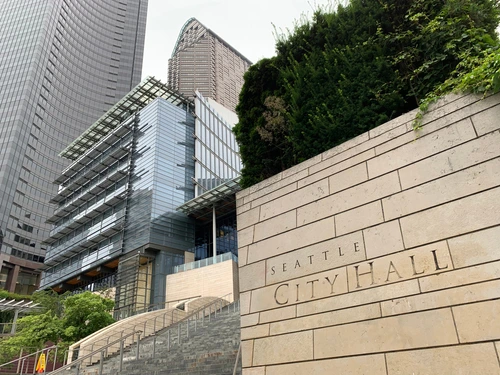
On 21 February, Seattle became the first city in the US to ban caste discrimination. The move by the city council aims to address issues within the South Asian communities.

“Caste discrimination doesn’t only take place in other countries. It is faced by South Asian American and other immigrant working people in their workplaces, including in the tech sector, in Seattle and in cities around the country… the policy protects those of South Asian descent from discrimination,” Councilmember Sawant told the press.
However, the measure has been opposed by some groups who argue that caste is already covered by US law.
Caste discrimination has been banned in India for more than 70 years, though many argue discrimination still persists.
What is caste discrimination?
Caste discrimination is a form of prejudice based on a person’s place in society that is most common in countries where the caste system originated, such as India and Nepal.
It is a centuries-old form of oppression that still exists in some countries today, despite bans being in place, and can manifest in a variety of ways, such as unequal access to education, employment and healthcare. Caste discrimination is described as a form of social stratification.
It is based on a person’s birth into a particular caste, which is a hierarchical system of social classes that assigns individuals a place in the social hierarchy. Caste discrimination is rooted in the belief that individuals are born into a particular caste and that their position in society is therefore determined by their caste.
This means that individuals from lower castes are often denied access to the same opportunities as those from higher castes. Caste discrimination can be both explicit and implicit. Explicit caste discrimination can include violence, segregation, and other forms of physical and verbal abuse. Implicit caste discrimination is more subtle, but can still be very damaging.
This includes the denial of certain opportunities and resources because of someone’s caste. For example, individuals from lower castes may be passed over for jobs or promotions due to their caste.
Are people against a ban on caste discrimination?
The Hindu American Federation wrote an open letter stating their belief that the new law was, in fact, unconstitutional. The Washington, DC-based group stated: “we believe that both the legislative intent and impact of Councilmember Sawant’s proposal unfairly singles out and targets an entire community on the basis of their national origin and ancestry for disparate treatment.”
The letter also highlighted that people of Indian descent only made up 2% of Washington state’s population.
The letter continued to say “Caste is one of the most complicated and misunderstood concepts encountered when attempting to understand India and Hinduism. Part of the challenge is that there is no universally accepted definition nor is there a uniformly held understanding of it.”
Is caste discrimination not covered by other discrimination laws in the US?
Caste discrimination is not a subject covered specifically by existing US laws as it was not an issue widely known to US lawmakers during early legislation.
However, many argue that cast discrimination would be covered under the 1964 Civil rights act as “caste discrimination is a type of racial discrimination, religious discrimination, and national origin discrimination.”
[Read more: Why your city needs to move its off-cycle elections to even years]






